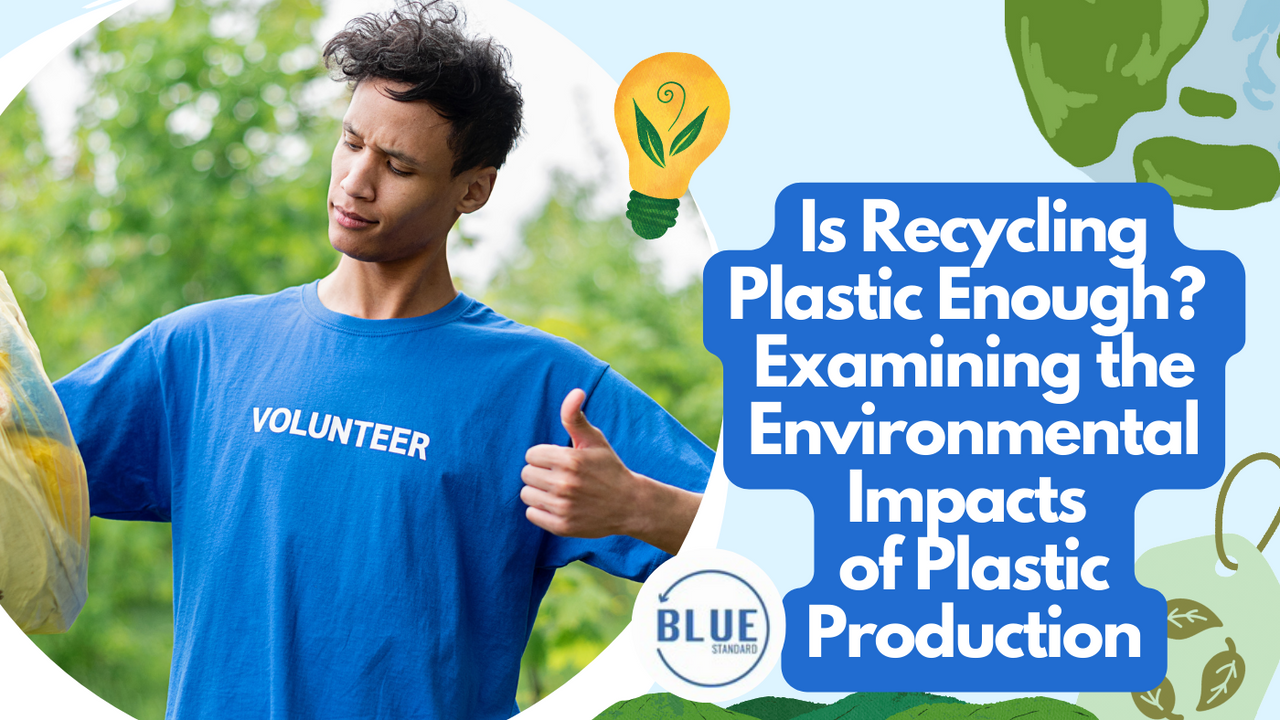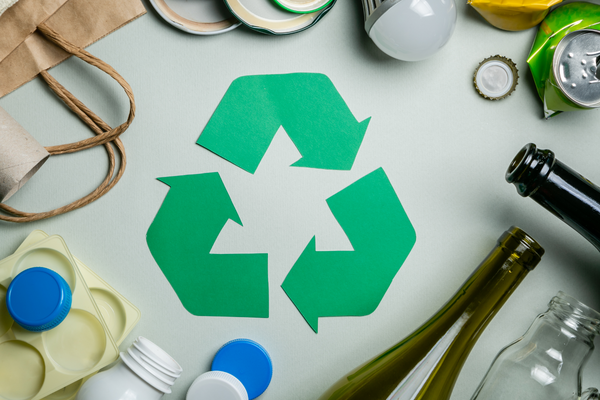
Is Recycling Plastic Enough? Examining the Environmental Impacts of Plastic Production
In recent years, there has been an increased concern about the environmental impact of plastic production and its disposal. The production and disposal of plastic have resulted in palpable negative effects on the environment, including pollution of waterways and oceans, degradation of soil quality, and greenhouse gas emissions.
This leads us to the question, is plastic environmentally friendly?
It’s not rocket science that plastic production has alarming negative effects on the environment, including pollution of waterways and oceans, degradation of soil quality, and greenhouse gas emissions.
But the more pressing issue is, when do we start acting on this?
What’s the solution to this problem?
The answer lies in the development of recycled and ocean-bound plastics, sustainably sourced wood and textile materials, and sustainable production practices.
It is crucial for companies and individuals alike to prioritize the use of these environmentally friendly solutions to create a sustainable future for generations to come. By doing so, we can reduce the environmental impact of plastic production and ensure a healthier planet for all.
As a result, companies like Blue Standard Inc. have been at the forefront of developing state-of-the-art technology in recycled plastics, ocean-bound plastics, wood, and textile materials to mitigate these negative effects.
Blue Standard Inc. is committed to mitigating the negative effects of plastic production and disposal by developing environmentally friendly solutions.
#1 Reduce waste by developing recycled plastic materials

One of the ways the company is addressing this issue is through the development of recycled plastic materials. Recycled plastics are created by taking post-consumer plastic waste and transforming it into new products. This process reduces the need for virgin plastic production, conserves natural resources, and minimizes the amount of plastic waste that ends up in landfills and oceans.
The degradation of soil quality leads to the contamination of water sources and the release of toxic chemicals into the environment poses a significant threat to marine life. This kind of plastic is collected from areas around the world where plastic waste accumulates, particularly in the ocean.
#2 Produce environmentally friendly wood and textile products

Another culprit in this situation is also the mishandling of plastic disposal. Plastic waste often ends up in landfills, where it can take hundreds of years to decompose.
The production of plastic involves the use of non-renewable fossil fuels such as crude oil, which is a finite resource. It also requires a significant amount of energy, contributing to the depletion of natural resources and pollution of the environment.
In addition to recycled and ocean-bound plastics, Blue Standard Inc. is also developing wood and textile materials that are environmentally friendly. This kind of material is sourced from sustainably managed forests and produced in a way that minimizes environmental impact.
This way, the company is able to reduce the amount of plastic used in its products while also contributing to the conservation of natural resources.
#3 Reduce carbon footprint through sustainable production processes

This environmentally friendly firm is also committed to reducing its carbon footprint by implementing sustainable practices throughout its production process. This includes the use of renewable energy sources, such as solar and wind power, to reduce energy consumption and greenhouse gas emissions.
It has also implemented a closed-loop manufacturing process that allows for the recycling of materials throughout the production process, reducing waste and conserving resources.
#4 Compel businesses and governments to take action

The environmental impact of plastic production and disposal is a significant issue that requires immediate action.
Companies like Blue Standard Inc. are leading the way in developing environmentally friendly solutions to mitigate these negative effects by developing recycled and ocean-bound plastics, sustainably sourced wood and textile materials, and implementing sustainable production practices.
The environmental impact of plastic production and disposal is a concerning issue that requires immediate action.
The use of recycled and ocean-bound plastics, sustainably sourced wood and textile materials, and sustainable production practices can significantly reduce the negative effects of plastic production on the environment.
But we haven’t reached the dead-end yet. There is a solution to this decades-long problem.
From the government down to companies and ordinary citizens, everyone is compelled to make long-term solutions in reducing the environmental impact of plastic production for a greener planet.
Businesses and governments must actively push for the use of green technologies, sustainable materials, and sustainable practices that can significantly reduce the environmental impact of businesses and industries.
Governments can incentivize the adoption of sustainable practices and materials through policies and regulations that encourage environmental protection and sustainability.
Citizens can do their part by adopting sustainable transportation methods, such as walking, cycling, and public transportation, to reduce carbon emissions from vehicles. Supporting electric vehicles and the use of alternative fuels such as biofuels and hydrogen can further reduce our reliance on fossil fuels and mitigate their negative effects on the environment.
Creating Sustainable Practices
What the world needs now is to create sustainable practices, materials, and technologies to reduce our impact on the planet and mitigate the negative effects of climate change, deforestation, and air and water pollution.
Take immediate action and prioritize sustainability so we could ensure a healthier planet for future generations.
You have the power to save our planet. Start today!
Other articles:
Quick links
Search
Privacy Policy
Refund Policy
Terms of Service
Environmental Sustainability Policy
Ethics Policy
Global Human Rights Policy
About us
Creating the new standard in sustainable CPG. Blue Standard is the future of healthier, safer, sustainable products for our families, pets, and planet.
Accepted Payments:

